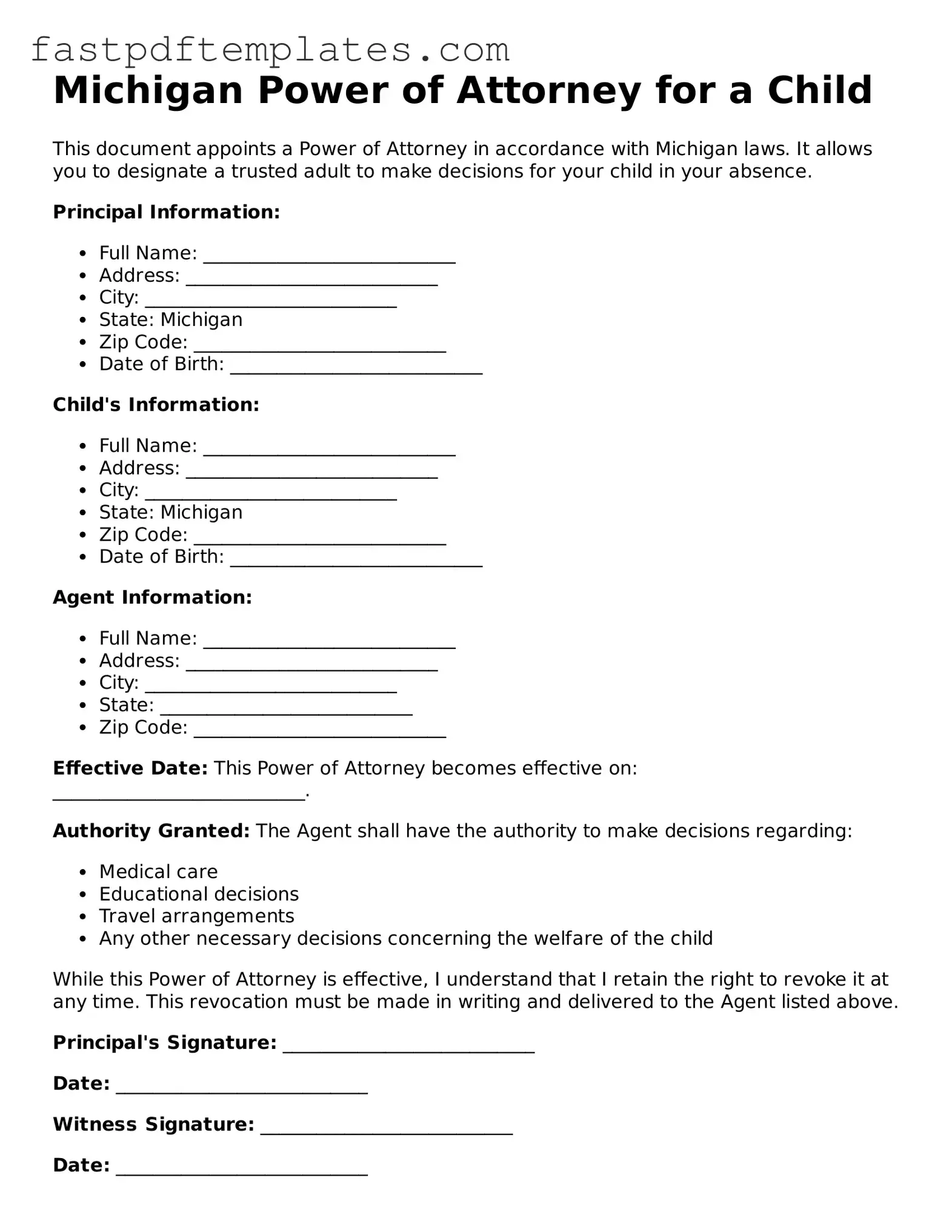Attorney-Approved Michigan Power of Attorney for a Child Document
The Michigan Power of Attorney for a Child form is a legal document that allows a parent or guardian to grant another individual the authority to make decisions on behalf of their child. This can include matters related to education, healthcare, and general welfare. Understanding this form is essential for ensuring that your child's needs are met when you are unable to be present.
Access Document

Attorney-Approved Michigan Power of Attorney for a Child Document
Access Document
Your form still needs completion
Complete your Power of Attorney for a Child online and download the final PDF.
Access Document
or
Click for PDF Form
